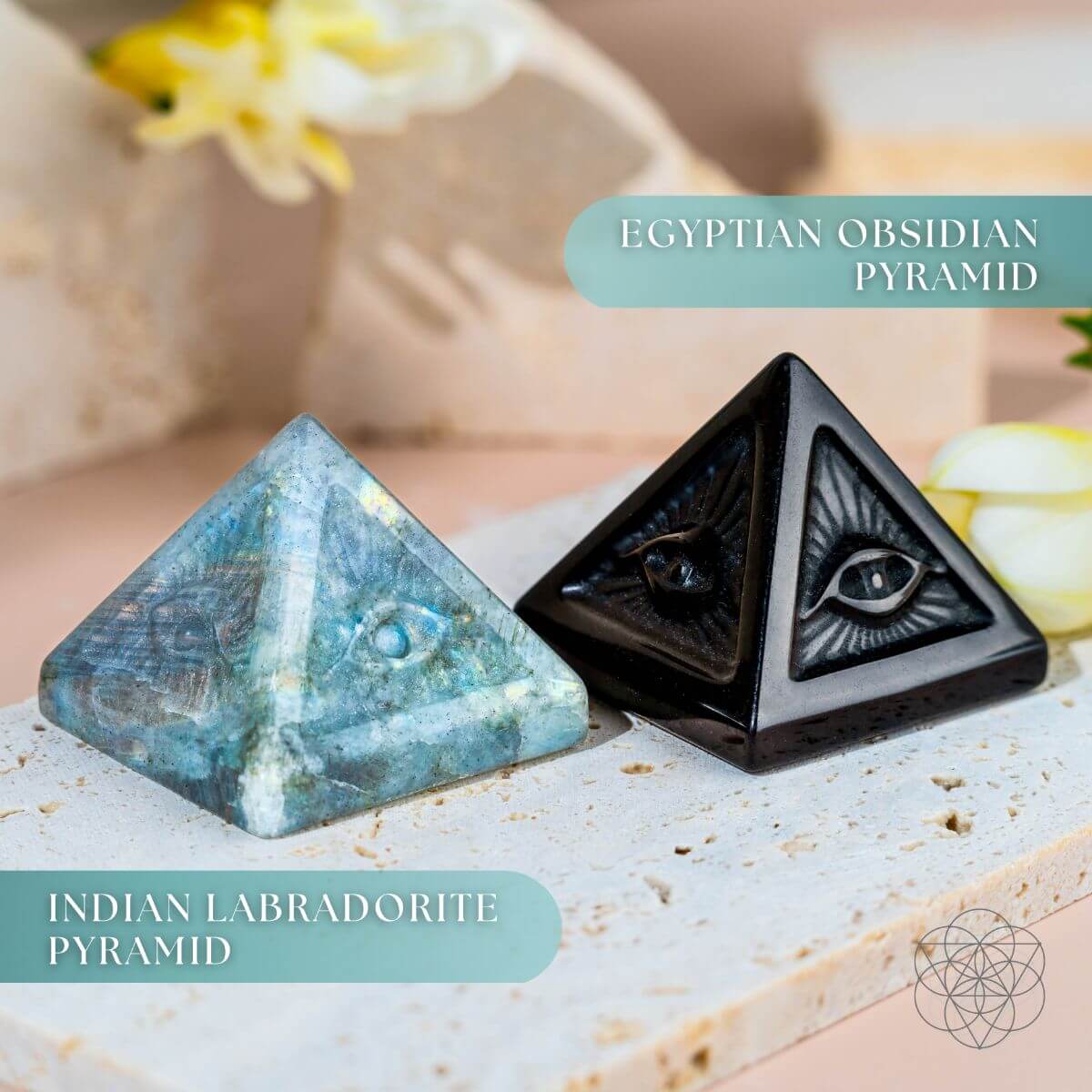
Reincarnation East and West:
Throughout history, birth, death, and the spaces in between—both before and after—have naturally been matters of great interest for cultures around the world.
The life we witness in our waking moments is generally opposed to another, less visible realm—an afterlife, in some religions; in others, a higher reality, next to which the world we perceive is a mere illusion. Different belief systems have numerous disagreements, of course, when it comes to the exact nature of these realities beyond life. However, there are also an intriguing number of similarities between many of them.
Browse our Affiliate Products
The concept of reincarnation—that the soul, after death, can return in a different body—has long been one of the most vital foundations of spirituality, philosophy, and ethical thought. What is shared between incarnations is more real, more truly “us” than the ephemeral physical body. In consequence, what we do in this life really matters: the repercussions of our actions extend into the next life, or even beyond.
In most versions of Christian theology, as is well known, people who have been good in life will go to heaven, where they can be close to God; those who haven’t are headed elsewhere (to purgatory at best). But many other religions and spiritual philosophies hold that while the goal, indeed, may be to transcend this existence into an ultimate reality where we can be closer to the Absolute, this life is precisely the purgatory from which we must free ourselves—perhaps, in fact, this life is the next life.
- Saṃsāra: Reincarnation in Hindu and Buddhist Spirituality
Brahman, Buddha, the cycle and the wheel—throughout the varied forms of Eastern spirituality, motifs mingle and recur. Sometimes the Supreme Being is named Vishnu, sometimes Brahma or Brahman, sometimes Shiva, and of course Buddha—sometimes they are all simply facets of a greater self, sometimes they are themselves incarnations of each other, born from one another at different times.
To the Western mind, dedicated even in its mythologies to the painstaking differentiation of identities, this situation can seem confusing or frustrating—much like life. But in fact, the multifaceted nature of divinity in Eastern religion is closely akin to their concept of reincarnation and human identity, for which it can be seen as a kind of macrocosmic metaphor.
The Supreme Being is non-dual, non-differentiated, and manifests at different times in different forms. This applies not only to the gods and spirits of the Hindu and Buddhist traditions, but to you and me as well: in Hindu philosophy we all partake in ātman, the true or inner self, from the smallest ant to the greatest deity; in the Buddhist tradition, we share instead in anātman, the no-self of emptiness that is the ultimate reality common to all. It would be a mistake to say these two ideas are the same—indeed, the question of whether we should seek to realize the true self or the non-self is one of the points on which Hindu and Buddhist doctrines most frequently conflict—but they agree on one important thing: the ultimate realization is the only thing that can free us from saṃsāra, the wheel of karma and reincarnation.
The oldest Hindu traditions assert that through pure and virtuous acts a soul can ascend through the cycle of rebirth, dying a peasant to be reborn as a king, or even a god. Conversely, acts of wickedness and impiety can cause a person of high rank to be reborn as a pig, an insect, or a tree. The wheel turns again and again, for the entire universe as well as for the people within it, so that we are all doomed to be reborn through an unending series of lives, each with its concomitant joy and suffering. Echoes of our acts reverberate from life to life: our pain is always tied to an evil deed in a previous existence, and our pleasures are rewards for good actions. A person who has great spiritual power, whether from being born with positive karma or from engaging in meditative practices, can remember details from past lives, or even remember those past lives fully—however, a wise person does not want to. True wisdom in the Hindu tradition, whether for a hermit or for a god, means wishing to be free of the wheel—to transcend it, shatter it, and be released into the Absolute. One term for this release is moksha.
For the Buddhists, the situation is similar, but the ultimate meaninglessness of reincarnation is placed in the foreground: it may be possible to remember past lives through spiritual practice, but this is irrelevant—because wisdom comes not only from understanding the illusory nature of duality, but from gaining an awareness of an all-encompassing void. That is, at the center of all things, which are illusion, is a single, supreme identity (the Lord, the Buddha), but this is also an illusion; the only reality is emptiness. The sage who has reached true understanding of this is said to have attained nirvāna, and is then free to choose his or her own fate: from a state of enlightenment, one can pass beyond the wheel immediately, entering the void. But some are said to choose the opposite: by remaining in their bodies and even electing to be reborn again, these Enlightened Ones (bodhisattvas) can be teachers for people who are lost among illusions, sacrificing their own freedom out of compassion for their fellows.
2. Metempsychosis, Palingenesia and Anamnesis: Reincarnation in Ancient Greece
The Greeks, while most famous for their logic, philosophy, and very well-organized mythology, also had a robust concept of reincarnation.
The oldest Greek philosophers believed that all things moved in cycles directed by great principles like Love and Strife or Fire and Water. What began in one would end in another, only to return to the beginning.
Human life was no different: palingenesia (παλιγγενεσία), “birth back again,” represented by Cecrops the snake, meant the eternal return of the soul to life. Metempsychosis (μετεμψύχωσις), the doctrine of the transmigration of the soul, was closely related. While the finer points of these beliefs are lost to history, they were already old one by the time of Plato—his Phaedo dialogue goes into some detail on the subject, wondering whether the soul is immortal (Plato, like Socrates and Pythagoras before him, believes it is).
It was commonly thought among the followers of the Orphic mysteries in Ancient Greece that this life is itself a kind of torture, punishment, or purgatory—a test through which we can purify our souls. The impure suffer not only on Earth, but afterwards, in Hades, and then again in another life—the pure, on the other hand, are free to join the gods in a realm of perpetual bliss.

Plato, taking this idea up, departed somewhat from the old Orphic tradition: for him, the realm into which we all wish to pass is the realm of the Absolute Ideal, of which the components that make up our world are only shadows. His proof of this was anamnesis (ἀνάμνησις), or “recollection”—the idea that we recognize things in this life, like Good and Evil, because we knew them already in their perfect forms. In this sense, everything we perceive is a memory from a past life: what is really in our mind when we see a chair, or a table, is not that particular assemblage of pieces of wood, but a distant memory of the Ideal Chair or Ideal Table, the essence we remember from our experiences in the other world.Like Eastern spiritualists, Plato believed that the soul would pass into another existence determined by its acts during this one: the greedy might return as pigs, the cruel as wolves, but those who were kind and thoughtful would return as humans again, remembering the best from their previous life, to continue purifying themselves—and eventually, once fully pure, they would pass beyond the darkness of the physical form, into the light.
Conclusion:
Eastern and Western perspectives on reincarnation and the transmigration of the soul are undeniably connected. It is possible that they share a common historical root: Eastern philosophies have stories of teachers that came out of the West to enlighten ancient seekers after truth. Western tradition, on the other hand, says precisely the opposite: some of the oldest Greek philosophers are said to have learned the secrets of philosophy and the gods by traveling into the East. Could it be that long ago, in a time we know nothing about, the wisdom of reincarnation was developed to a high degree somewhere in Central Asia? Perhaps.
It is also possible that these beliefs developed independently, for one reason or another. It’s conceivable, for example, that our psychological makeup predisposes us to believe in reincarnation on an individual level, and consequently on a cultural level as well.
It’s also conceivable that we’re just remembering something we all know, deep down, is true: we have been here before, and we will be here again.
We may wish to be reborn into a higher form or true reality, or we may wish to trade our earthly fetters for dissolution into the all-consuming void. We may have different beliefs regarding the nature of things. But one thing is certain: we lose nothing by being kind and compassionate to our fellow beings, and if we do so unselfishly, perhaps we gain everything by it.
X-x”Be the change you want to see in the world”x-X
Bibliography:
Guthrie, W. K. C. Orpheus and Greek Religion. Princeton, N.J.: Princeton University Press, 1993.Nikhilananda. The Upanishads. New York: Harper & Row, 1964. Plato. Phaedo. Trans. Benjamin Jowett. Roslyn, N.Y.: Walter J. Black Inc., 1969. Zimmer, Heinrich. Myths and Symbols in Indian Art and Civilization. Princeton, N.J.: Princeton University Press, 1974.










Brilliant article brother. As a person who follows the teachings of Buddha, I was impressed with your knowledge of Hindu vs Buddhism in regards to “self” and “non-self” philosophies. I enjoyed reading this article. Peace, love and light brother.